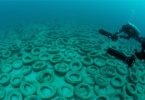MAASAI MARA, Kenya – The white sandy beaches, wildlife and tropical climate of East Africa are losing their attraction for long-distance visitors facing recession and unemployment as a result of the global financial crisis.
To Europeans and North Americans, it is a remote and expensive destination, and one of the first to be dropped from holiday itineraries when money is tight.
Tourism is Kenya’s third-biggest earner of foreign exchange, behind horticulture and tea, and economists fear falling visitor numbers as a result of the downturn will hit earnings and damage local firms that provide jobs and keep people out of poverty.
Scottish student Roddy Davidson, 38, and partner Shireen McKeown, 31, agonised for months before deciding to take their dream holiday in Kenya — a luxury safari tour in the Maasai Mara wildlife reserve.
“Who is to say we’d do it at all if we waited three or four years?” Davidson said as he sunbathed beside a pool overlooking the Rift Valley at the Mara Serena Safari Lodge.
“A lot of people I know are staying home or taking holidays at camp sites in the UK. I’ve got friends who, in the past few years, would have gone overseas but a tent holiday is far cheaper than booking four seats on a plane.”
Kenya’s Tourism Ministry says the industry accounts for at least 400,000 jobs in the formal sector and more than 600,000 in the informal sector of East Africa’s biggest economy.
However, operators worry about the prospect of having to cut jobs.
“The first to be laid off are the casual staff from nearby villages,” said Samson Apina, assistant manager at the Mara Serena Safari Lodge. “Last year, for the financial crisis we had to lay off some 20 or 30 casual staff.”
Apina also said tourism was still affected by the damage to Kenya’s image from post-election violence a year ago.
German tourists Uwe Trostmunn, 38, and his partner Sina Westeroth agreed. They postponed a trip to Kenya last year, visiting Thailand instead.
“You see nothing but bad news from Kenya on the television, never the good news,” Trostmunn said.
“PERFECT STORM”
Richard Segal, Africa specialist and head of macroeconomic research at UBA Capital, said there was a consensus that East Africa’s tourism sector would suffer a 15-percent drop in 2009.
Kenya, Tanzania, Mauritius and the Seychelles are most likely to feel the pinch, experts say, because of the importance of tourism to national income and employment.
“It’s really almost a perfect storm of bad news for foreign currency earnings for East Africa,” said Segal.
Kenya’s visitor numbers fell by 30.5 percent to 729,000 last year after the post-election violence.
Aggressive marketing at home and abroad has failed to stem the slide in the face of the world economic slowdown.
Kenya’s largest group of holidaymakers — 42.3 percent — comes from Europe. Central bank figures show the number of European visitors fell by 46.7 percent in 2008 to 308,123.
Kenya has cut the fee for an adult tourist visa to $25 (17 pounds) from $50 to try to defend market share but the Tourism Ministry does not expect the outlook to improve this year.
Gunther Kuschke, a sovereign credit analyst at Rand Merchant Bank, said the loss of tourist-funded foreign exchange revenues could be disastrous for many east African countries.
“Foreign reserves are a proxy on how able the country is to service its short-term loan obligations,” he said. “As soon as that starts to deteriorate it raises a red flag.
“Lower forex reserves also imply a more volatile local currency,” he said, adding that Tanzania faced a big challenge as tourism was its prime foreign exchange earner.
The downturn has caused tourist cancellations of between 30 and 50 percent during the six months to June in the country that is home to Mount Kilimanjaro, the Serengeti grasslands and the beaches of Zanzibar.
SEAWEED FARMING
The islands of Zanzibar are regarded as particularly at risk since the bottom fell out of the clove market, making tourism and seaweed farming the main sources of jobs and earnings.
The archipelago’s main tourism market is Italy, a country itself on the brink of economic crisis. Italian tourist numbers dropped by 20 percent to 41,610 last year, while the total of international visitors fell by 10 percent to 128,440, according to the Zanzibar Commission for Tourism.
Local operators are worried about the knock-on effect on fishermen and local traders.
“You see a lot of produce but there is nobody to buy — this is the chain. If all are selling but there is no tourist, who is going to buy?” said Zenith Tours manager Mohammed Ali, who has worked in Zanzibar for more than 15 years.
Workers fear job losses. “I don’t know if I’ll have a job after June. Many people are suffering,” said Isaac John, a hotel receptionist who comes from mainland Tanzania.
The Zanzibar Commission for Tourism said it was changing its advertising strategy.
“We were focussing on the European market but now the focus is on the regional market to overcome the global crisis,” said Ashura Haji, the commission’s director for planning and policy.
Kuschke said Mauritius faced serious macroeconomic deterioration since it was a small, open economy where tourism and textiles made up 50 percent of foreign exchange earnings and more than 15 percent of gross domestic product.
Similarly, in the visitor-dependent Seychelles, tourism revenues are expected to fall by 10 percent in the next year.
UBA Capital’s Segal said the outlook was not all bleak: “Tourism was growing quite sharply and the decline takes it back to the levels of 2006-07, and they were still reasonable years.”
Haji, too, remained positive about the future for Zanzibar.
“The depression will not last forever,” she said. “One day it will come good again.”






















